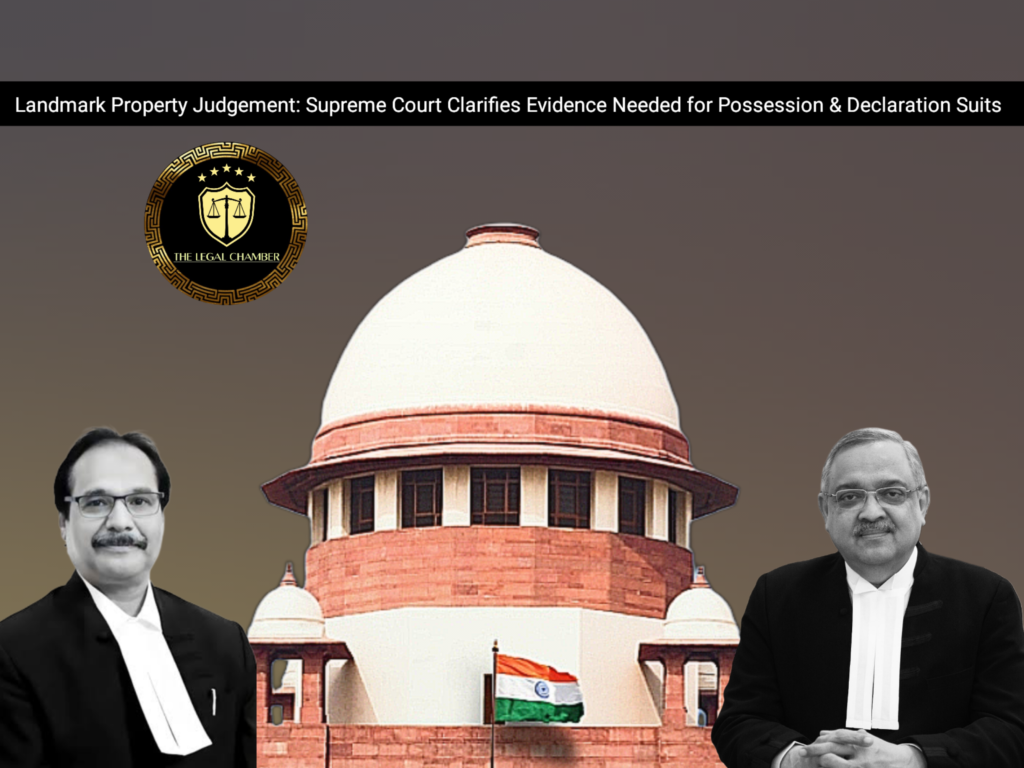
The Supreme Court upheld the High Court’s reversal of concurrent findings, ruling that a title deed is primary evidence of ownership. Mere presence of waste or manure on a property does not establish possession for the defendant. A declaratory suit under Section 34 of the Specific Relief Act, 1963, is maintainable when the defendant fails to prove their own possession.
Facts Of The Case:
The plaintiff, Suresh Tukaram Nerkar, filed a suit for declaration of his ownership and possession, and for a consequential permanent injunction against the defendants. His claim was based on a sale deed (Ext. 81) purportedly covering 150 square metres of land, which included a residential building on one portion (‘ABCD’) and an adjacent open plot (‘PCDF’). The suit was triggered by the defendants, particularly defendant No. 9, dumping waste and keeping manure on the open plot despite the plaintiff’s objections. The trial court and the first appellate court dismissed the suit, citing discrepancies in revenue records and finding that the plaintiff failed to prove title and possession, especially since he did not seek recovery of possession. The first appellate court also held the suit was not maintainable under Section 34 of the Specific Relief Act, 1963. The High Court, in a second appeal, reversed these findings, holding that the lower courts’ readings of the title document and their findings on possession were perverse. The Supreme Court affirmed the High Court’s decision, restoring the decree in favour of the plaintiff.
Procedural History:
The suit was initially dismissed by the Trial Court, which found that the plaintiff failed to establish his title over the suit property. This decision was concurrently affirmed by the First Appellate Court, which additionally held the suit to be not maintainable under Section 34 of the Specific Relief Act, 1963, as no prayer for recovery of possession was made. The plaintiff then preferred a Second Appeal before the High Court. The High Court allowed the appeal, setting aside the judgments of the courts below and decreeing the suit in favour of the plaintiff, having found their findings to be perverse. The defendants, in turn, appealed to the Supreme Court, which, in its impugned judgment, dismissed the appeal and upheld the decision of the High Court.
READ ALSO :Supreme Court Boosts Compensation: Sets Minimum Income for Accident Victims
Court Observation:
Download The Judgement Here